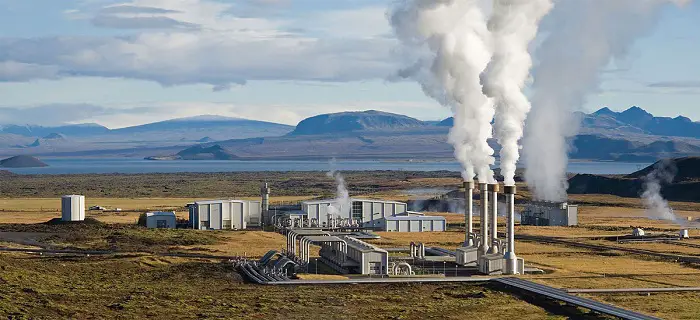In July 2017 Djibouti secured US$ 27m in funding from the Kuwait Development Fund for the development of the Gale-Le-Koma geothermal project in the Lake Assal region. The funding deal came on the back of a two-week technical and financial evaluation of the site.
The loan will help to underwrite the drilling of eight production boreholes as well as two re-injection boreholes for a new geothermal power plant, which is set to come on-line in 2021. The plant will have an initial capacity of 15 MW, with the potential for a total capacity of 50 MW following completion of the final phase in 2025.
The Gale-Le-Koma project is far from the only geothermal project in the small 900,000-person country. The Kuwait Development Fund loan came a month after state-owned utility Electricité de Djibouti (EDD) signed an exploration contract with Iceland Drilling Company for the drilling and testing of two 2500-metre geothermal exploration wells, and two optional wells in the Fiale Caldera area of Lake Assal.
The Fiale Caldera drilling is a component of the World Bank’s $27.8m Geothermal Power Generation project. It was launched in mid-2013 to assess the commercial viability of geothermal power production in Lake Assal. Several other development finance institutions are also participating in the financing. These include: the African Development Bank, the Overseas Private Investment Corporation, the French Development Agency and the International Development Association.
Geothermal highest potential source of energy
The projects at Gale-Le-Koma and Fiale Caldera are part of a broader push by the government to develop the geothermal potential in Lake Assal and other regions of the country. In 2014 a study by the Japan International Cooperation Agency identified 13 geothermal sites for potential development – at Lake Assal; Hanle-Garabbayis in the Afar region; North Goubet; and Gaggade in the Dikhil region – which could collectively add at least 1 GW of generation capacity. This puts geothermal as Djibouti’s highest potential source of energy, ahead of both solar and wind.
However, it is not only development financing behind the country’s nascent geothermal segment. In August last year ODDEG signed a memorandum of understanding with Japanese industrial conglomerate Toshiba. The MOU was for the development of 50 MW of geothermal power projects across the country. As a part of this partnership, Toshiba will assist in the development and supply of generation equipment, and the training of personnel at power plants.
Enhancing energy security through renewables
Developing geothermal potential is central to achieving the government’s goal of relying entirely on clean energy by 2020. This is a key component of the country’s Vision 2035 economic strategy. Currently, Djibouti depends on imported hydropower from Ethiopia to meet roughly two-thirds of its domestic energy needs. However, with Vision 2035 forecasting an increase in demand to more than 230 MW within three years. This is an increase from 121 MW.
Furthermore, given that Djibouti currently relies primarily on four heavy fuel and diesel power plants for its own domestic generation – which combined have a capacity of 126 MW, but often produce far less – shifting to renewables will also help the country realize its target of reducing greenhouse emissions by 40 percent by 2030.

